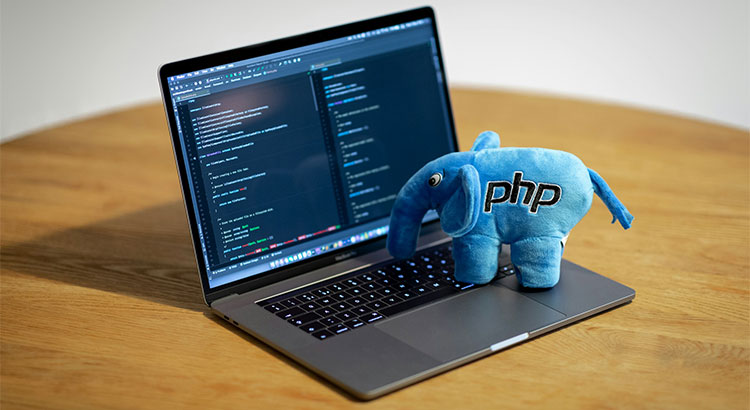The best PHP frameworks simplify the process of building dynamic web applications by providing pre-built modules, standardized practices, and scalability.
Whether you’re a beginner or an expert, these frameworks allow developers to concentrate on application logic and develop efficient solutions. This article will show you some of the best PHP frameworks for developers at all skill levels, explaining their features and benefits.
What Is PHP Framework?
PHP frameworks are essential tools that help developers create PHP-based applications more efficiently. They streamline the development process by providing reusable code libraries, design patterns, and modules.
This allows developers to concentrate on building functional web applications without having to start from the ground up. Given that nearly 80% of websites utilize PHP, these frameworks play a crucial role in boosting both productivity and the quality of applications.
Why Use PHP Framework?
Here are key reasons why using a PHP framework can significantly benefit your development process.
1. Speed up Web Development
PHP frameworks come with pre-built modules and templates, helping developers build web applications faster. By avoiding repetitive coding and having essential functionalities like user authentication or database interaction pre-configured, development time is significantly reduced.
2. No Need to Write Additional Code
Instead of writing long lines of code, PHP frameworks streamline the process with efficient, reusable components. This allows developers to focus on refining features and logic rather than worrying about coding fundamentals, ensuring faster and cleaner development.
3. MVC Architecture Support
Most PHP frameworks implement the Model-View-Controller (MVC) architecture, which separates the presentation layer from the business logic. This structure allows multiple developers to work on different layers simultaneously, improving collaboration and ensuring organized, scalable code.
4. Automates Common Tasks
Frameworks like Laravel and Symfony automate routine web development tasks, such as session management, URL routing, and caching. This automation reduces manual work, enabling faster project delivery and more efficient development.
5. Ensures Compliance with Coding Standards
PHP frameworks are built with standard coding practices in mind. By following these conventions, developers ensure their code is well-structured, maintainable, and compliant with industry standards, making future updates and maintenance easier.
6. Simplifies Maintenance
With clear structure and readable code, PHP frameworks make maintaining and upgrading applications simpler. Their built-in features and standardized approach reduce issues with compatibility and enhance long-term project sustainability.
Most Popular PHP Frameworks
Take a look at a list of the top 10 PHP frameworks:
1. Laravel
Laravel stands out as one of the most popular PHP frameworks, particularly favored by beginners. Its elegant syntax makes coding feel more intuitive. With built-in tools like the Blade templating engine, RESTful routing, and Homestead for local development, it has become a go-to choice for quickly and efficiently creating robust web applications.
2. CodeIgniter
CodeIgniter is celebrated for its simplicity and lightweight nature, making it an excellent choice for developers seeking a fast and straightforward setup. Its minimal footprint and easy-to-understand architecture are ideal for building dynamic websites with little configuration, especially for those just starting out.
3. Symfony
Symfony is a powerful and modular framework commonly used in large-scale applications. It provides a wide array of reusable PHP components, including tools for form creation and authentication. While it does have a steep learning curve, its flexibility and extensive features make it a great fit for professional developers tackling complex projects.
4. Laminas Project
Previously known as Zend, Laminas is an enterprise-grade, object-oriented PHP framework. Its modular design allows developers to utilize only the components they require, making it suitable for constructing large, scalable web applications. However, its complexity means it’s best suited for experienced developers.
5. Phalcon
Phalcon is a high-performance framework that is written in C, allowing developers to interact with it using PHP. It is renowned for being one of the fastest frameworks available due to its low memory consumption. Its MVC architecture and lightweight design make it an excellent option for applications where performance is critical.
6. CakePHP
As one of the oldest frameworks, CakePHP remains highly respected for its user-friendliness and convention-over-configuration philosophy. It offers a solid set of libraries that enable developers to quickly create prototypes or fully-featured web applications. CakePHP is perfect for those seeking consistency and simplicity in their development process.
7. Yii 2
Yii 2 is a high-performance PHP framework that is particularly effective for quickly developing large-scale applications. It supports AJAX, features strong caching mechanisms, and enables seamless database interactions for developers. Its user-friendly design makes it accessible for beginners, while its comprehensive features are tailored for experienced professionals.
8. FuelPHP
FuelPHP provides both flexibility and security by fully embracing the HMVC (Hierarchical Model-View-Controller) architecture, which facilitates the testing of individual components within an application. With seven built-in security features, it’s an excellent choice for developers who prioritize security in their projects.
9. Slim
Slim is a micro-framework that is perfect for creating lightweight APIs and web applications. Its minimal configuration makes it an attractive option for developers seeking a straightforward and fast solution for RESTful APIs and small web projects.
10. PHPixie
PHPixie is another HMVC-based framework that focuses on building high-performance web applications. It is recognized for its simplicity and reusability, featuring independent components that minimize dependencies. Although it may be less flexible than some other frameworks, it remains a reliable option for smaller projects.
Final Thoughts on Top PHP Frameworks
PHP frameworks have transformed the development of web applications, enabling developers to concentrate more on logic and creativity while minimizing repetitive tasks. By selecting the best PHP framework, developers can enhance efficiency, maintain high code quality, and create scalable, future-proof applications.
